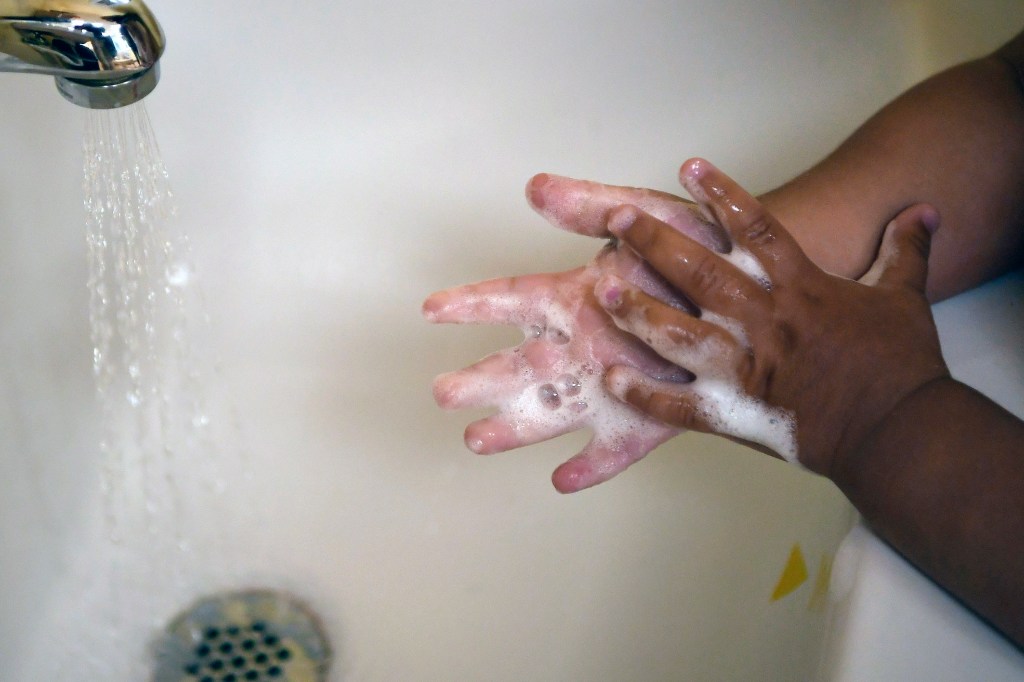In the winter months, it seems few are safe from some type of illness – the flu, COVID-19, norovirus, the common cold.
While many of the germs that cause this misery can circulate year-round, scientists think the winter spike in flu and cold activity may be because we spend more time indoors and the cold, dry air can weaken our defenses. .
But knowing what these bugs are and how they spread can help. While it may be difficult to make it through the season completely unscathed, there are some things you can do to protect yourself from these respiratory and stomach viruses.

How do I know if I have a cold, flu, COVID-19 or something else?
Some symptoms are difficult to distinguish between diseases, especially with respiratory viruses.
Others are infallible.
- Norovirus is a foodborne illness that can be spread through contaminated water and surfaces and can cause vomiting, diarrhea, nausea and stomach pain for about one to three days.
- The common cold can be caused by several different types of viruses and can cause a runny nose, congestion, cough, sneezing, sore throat, headache, body aches, or low-grade fever for less than a week.
- The flu, caused by ever-changing flu viruses, leads to fever, chills, cough, sore throat, runny nose, body aches, headache and feeling tired. Flu symptoms tend to hit faster than cold symptoms and can last anywhere from a few days to two weeks.
- COVID-19 can cause fever, chills, cough, shortness of breath, sore throat, congestion, loss of smell or taste, fatigue, aches, headache, nausea, or vomiting for several days.
- RSV can cause a runny nose, congestion, cough, sneezing, wheezing, fever, and loss of appetite for a week or two.
One way to protect yourself from all viruses: Wash your hands
Seriously. Rigorous and frequent hand washing – with soap! — is essential to reduce the spread of norovirus, colds, flu and COVID-19.
This is especially true after using the bathroom and eating or preparing food, says the US Centers for Disease Control and Prevention.
Don’t rush through it either. Count to 20, slowly, as you brush.

If you don’t have access to soap and water, try a hand sanitizer with at least 60% alcohol—although that’s not enough to kill norovirus.
Cleaning surfaces can wipe out viruses
If norovirus has found you, you’ll want to immediately clean surfaces that have come into contact with contaminated food or bodily fluids.
The CDC recommends disinfecting things with a chlorine bleach solution or one of the products listed on this Environmental Protection Agency website.
Remember to wash any clothing that has come into contact with vomit or faeces – use hot water and detergent.
Then, wash your hands – again.
With colds and flu, it’s best to regularly clean surfaces you come in contact with a lot.
Think doorknobs, light switches, ceilings, beloved toys, cell phones.
Use household cleaning products that contain soap or detergent and follow with a disinfectant.
The CDC has more tips on how to clean up.
COVID-19 is generally spread through the air by droplets and particles, and the CDC says the risk of getting the virus from a contaminated surface is low.
Keeping your hands away from your face can keep viruses out
Viruses can be spread through talking, coughing and sneezing, so cover your mouth with a tissue if you feel a tickle in your throat or nose.
Then, wash your hands – again.
Also, even if you’re not sick, consider covering up in crowded areas with an N95 or medical-grade mask to protect yourself from respiratory viruses.
Don’t touch your face: If you have a germ or virus on your unwashed hands—respiratory or norovirus—and you touch your face, eyes, or nose, it can get into your mucous membrane and, voila!, you’re sick!
Consider a vaccine (if available)
Updated vaccines for COVID-19 are available, as well as annual flu shots for those 6 months and older.
For those 60 and older or for people who are pregnant, you may want to get the RSV vaccine.
But there is no vaccine for norovirus or the common cold.
Another way to keep your virus defenses up: Rest
Your immune system may not work as well if you are sleep deprived, stressed or dehydrated.
So don’t grind yourself into the ground if you can help it.
Rest, sleep and drink water.
If you are sick, stay home
If you do get sick, immediate testing can help determine whether you have COVID-19 or the flu.
This is important to see if you need one of the drugs that can help prevent serious illness: Paxlovid for COVID-19 and Tamiflu for the flu.
Above all, if you are symptomatic, stay home to avoid making others sick.
To treat a cold, flu or COVID-19, rest and drink fluids.
You can take pain relievers to reduce fever or help with body aches.
Humidifiers can also help with symptoms.
There is no cure for norovirus.
Instead, you will need to rehydrate as much as possible with water and other fluids.
Get help if you are dehydrated and notice that you have a dry mouth and throat, don’t urinate as much, or feel dizzy when you stand.
#protect #norovirus #COVID19 #influenza #RSV #winter #growth
Image Source : nypost.com